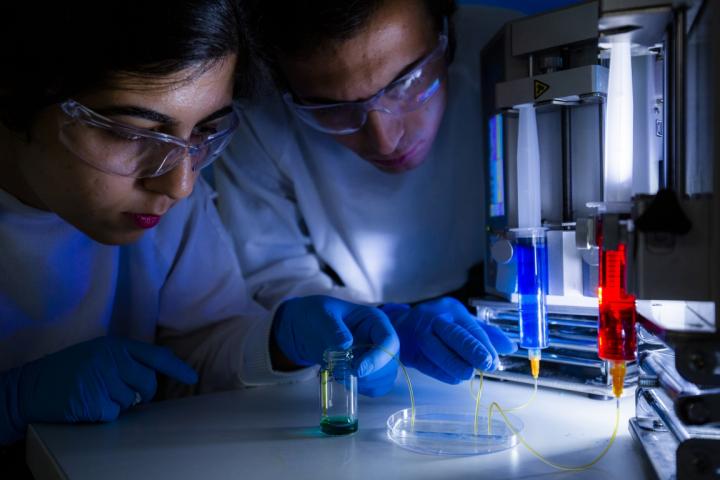
Credit: University of South Australia
University of South Australia biomedical engineer Dr Marnie Winter has been awarded US$100,000 from the world’s largest private foundation to help better understand and tackle a condition which kills 76,000 women and 500,000 babies each year.
The international team led by Dr Winter has received funding from the Grand Challenges Explorations, an initiative of the Bill & Melinda Gates Foundation, to explore cutting-edge nanotechnology and bioengineering approaches to address pre-eclampsia, one of the most common complications in pregnancy.
Pre-eclampsia is characterised by high blood pressure and affects more than 10 million women each year (5-8 per cent of all pregnancies), which especially in low-income countries can have catastrophic consequences and put both mothers and babies’ lives at risk.
Current treatments for pre-eclampsia include reducing the mother’s blood pressure but these only mitigate the symptoms and don’t address the cause, Dr Winter says.
“At the moment the only way to definitively treat pre-eclampsia is to deliver the baby, but we now know that the consequences of the condition can last long after giving birth.”
Dr Winter and her team, including Professor Benjamin Thierry who heads the UniSA Future Industries Institute Bioengineering group, and researchers from the University of Adelaide and University of Toronto, will investigate the use of tiny drug carriers to treat – and even prevent – pre-eclampsia and its complications without affecting the fetus.
The team hopes to develop a treatment based on HDL or “good cholesterol” which can carry molecular drugs and naturally bind to the placenta and blood vessels which are damaged in preeclampsia, effectively targeting pre-eclampsia pathways.
A significant challenge is the lack of in vitro models that recreate what happens during pre-eclampsia says Professor Thierry. “We will therefore bioengineer advanced models of the placenta that will hopefully provide new insights into the condition and accelerate the development of treatment”.
A focus of the 18-month project is to develop potential treatments compatible with low resource and/or remote settings, including regional Australia and low-income countries which often suffer the most severe consequences of the disease.
###
Media Contact
Candy Gibson
[email protected]
61-883-020-961
Original Source
https:/




